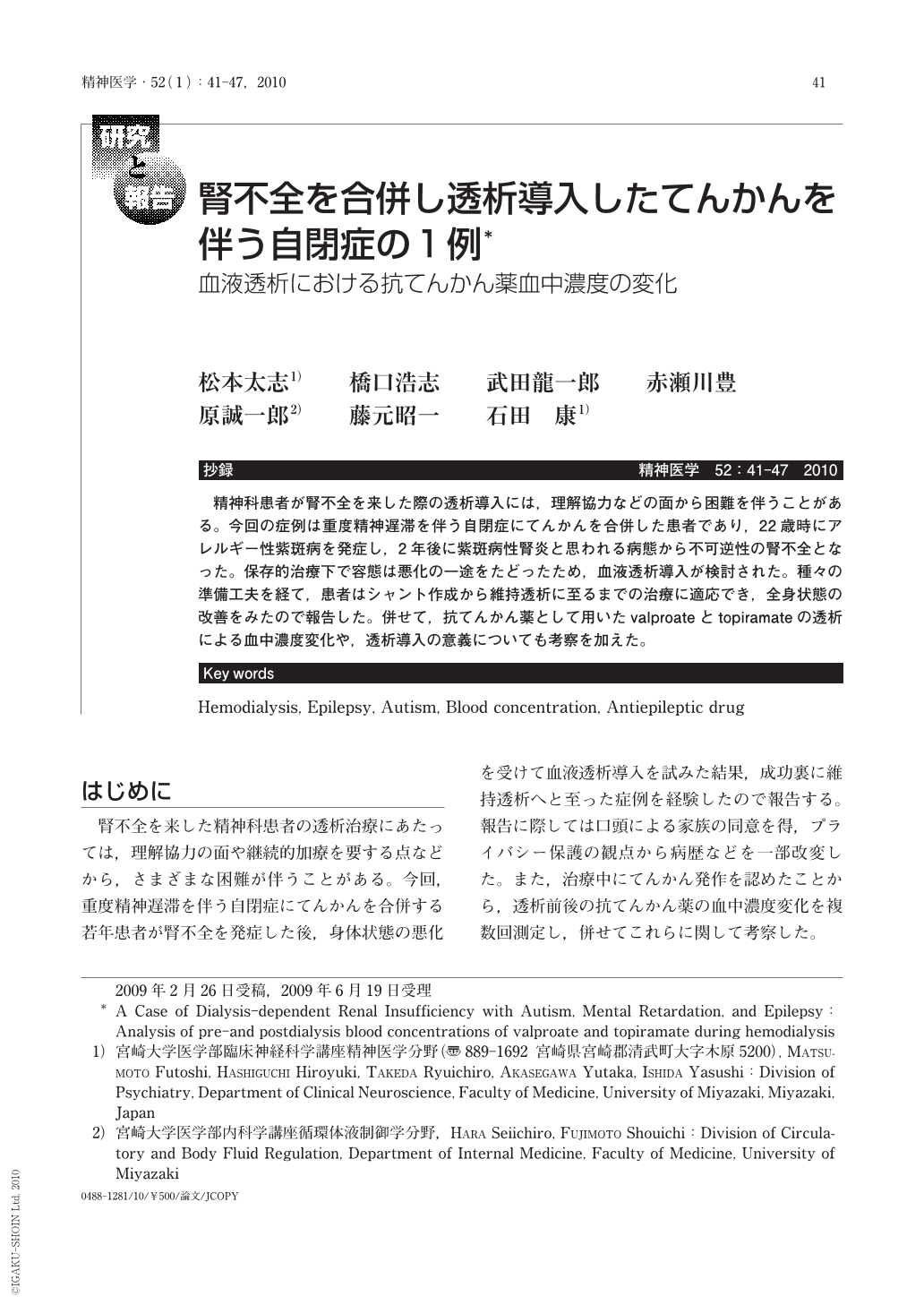Japanese
English
- 有料閲覧
- Abstract 文献概要
- 1ページ目 Look Inside
- 参考文献 Reference
抄録
精神科患者が腎不全を来した際の透析導入には,理解協力などの面から困難を伴うことがある。今回の症例は重度精神遅滞を伴う自閉症にてんかんを合併した患者であり,22歳時にアレルギー性紫斑病を発症し,2年後に紫斑病性腎炎と思われる病態から不可逆性の腎不全となった。保存的治療下で容態は悪化の一途をたどったため,血液透析導入が検討された。種々の準備工夫を経て,患者はシャント作成から維持透析に至るまでの治療に適応でき,全身状態の改善をみたので報告した。併せて,抗てんかん薬として用いたvalproateとtopiramateの透析による血中濃度変化や,透析導入の意義についても考察を加えた。
Patients with mental disorders who develop renal insufficiency sometimes find it difficult to accept that they require treatments such as hemodialysis. Hence, it is often difficult to initiate dialysis or continuous therapy for these patients. A 22-year-old male patient with autism, mental retardation, and epilepsy developed Henoch-Schönlein purpura, and later showed signs and symptoms of purpura nephritis, which was highly suspected but could not be confirmed by a biopsy owing to his mental condition:he eventually developed irreversible renal failure after 2 years. His condition was aggravated with conservative treatment. Hemodialysis was selected as the therapy after carefully consideration. He cooperated during the treatment, including shunt placement and maintenance dialysis without restlessness, only after various attempts such as providing him with structured information about the prearranged procedure for dialysis were taken. His physical state has improved since the treatment. In order to detect ictal onset during hemodialysis, we measured the pre-and postdialysis blood concentrations of the antiepileptic drugs in use, namely, valproate and topiramate, so as to obtain information for adequate dose range. We also examined the variations in concentration changes from one dialysis session to another by referring to some reports.

Copyright © 2010, Igaku-Shoin Ltd. All rights reserved.


